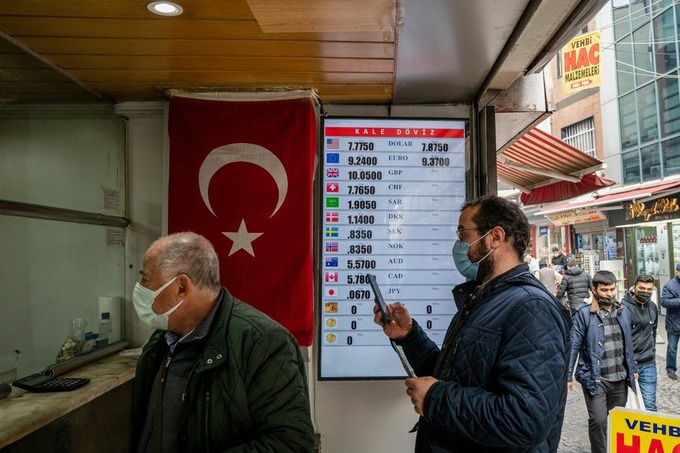In a recent development impacting financial relations between Turkey and Russia, a number of Turkish banks have reportedly ceased collaboration with credit institutions from Russia since the end of December. Citing sources within the financial sector and foreign trade, Kommersant reported that several Turkish banks are either terminating correspondent relations or suspending transaction processing with Russian partners.

The issues have been persistent but are now exacerbated, with Kommersant noting that some counterparties are formally terminating correspondent relations, while others are halting transaction processing without officially ending contracts.
The problems with Turkish banks have been ongoing, with reports indicating that they were observed as far back as the summer. Georgiy Vlastopulo, CEO of Optimalog, highlighted the difficulties and mentioned that Turkish banks expanded document requirements following the European Union's introduction of the twelfth package of sanctions. These requirements include ensuring that participants in the transaction chain are not under sanctions, and purchased goods are not on sanctions lists.
Dmitry Sukhoversha from FM Logistic noted that while payments in rubles are accepted, they are not in high demand. He also added that Turkish banks have increased their document requirements in response to the evolving sanctions landscape.
SOTA Logistic Business Development Director Igor Chernyshev mentioned that requests for the indication of final recipients and declarations for goods have become prerequisites for processing payments. Currently, only one bank processes payments, leading to delays due to the high volume of transactions.
Reports suggest that Turkish banks started scaling back contacts with Russia following a U.S. decree on secondary sanctions for banks assisting Russian institutions. President Joe Biden signed the order on December 22, 2023.
While concerns over Turkish banks' restrictions on Russian institutions are prevalent, there are also reports of disruptions in settlements with China. Sanjar Ashuraliev, head of Delko, stated that payments by non-residents for transactions with China can take up to a week, although Georgiy Vlastopulo described these disruptions as "spotty."
The head of the Electronic Money Association, Viktor Dostov, emphasized that secondary sanctions are a "rather tough" lever of pressure. Turkey has been one of the primary conduits for Russia's trade with Western countries, providing a crucial link for economic activities.
Romana Prokhorova, head of the Financial Innovations association, suggested that Ankara is keen on maintaining its role as a "commodity and transport hub between the Russian Federation and Europe." While the situation remains uncertain, some experts anticipate a resolution by the end of January.
As these challenges unfold, stakeholders, including the head of the Turkish Exporters' Assembly, Mustafa Gültepe, are waiting for a resolution, while Yulia Shlenskaya from KVT is optimistic that a solution will be found in the coming weeks.
Chairman of Uzbekistan's Central Bank, Mamarizo Nurmuradov, expressed deep concerns over the devaluation of the Russian ruble, resulting in a drop in monetary remittances to Uzbekistan. Nurmuradov highlighted a 26% depreciation in the ruble this year, significantly impacting money transfers from Russia, which constitute about 80% of foreign remittances to Uzbekistan. In the first half of 2022, remittances totaled $6.5bn, but this figure decreased to approximately $5.1bn in the corresponding period this year due to the ruble's depreciation, affecting the overall inflow of funds into Uzbekistan.
Earlier Daryo reported that the Russian Cabinet of Ministers has approved the ability for individuals from Uzbekistan to open bank accounts in Russian banks remotely. This decision, authorized by Russian Prime Minister Mikhail Mishustin on October 17, extends the opportunity for remote identification for financial transactions to citizens of 25 countries. Noteworthy inclusions on this list, alongside Uzbekistan, are Kazakhstan, Kyrgyzstan, Tajikistan, Belarus, Azerbaijan, Armenia, and Moldova.
Comments (0)